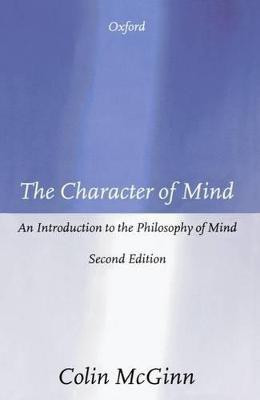The Character of Mind(English, Paperback, McGinn Colin)
Quick Overview
Product Price Comparison
Of what nature is the mind? So Colin McGinn starts his first chapter, and this is his guiding question. He pursues the answer with a boldness and provocativeness rarely encountered in philosophical writing. As he explains, my aim has been to give the reader something definite and stimulating to think about, rather than to present a cautious and disinterested survey of the state of the subject. The Character of Mind provides a general introduction to the philosophy of mind, covering all the main topics: the mind-body problem, the nature of acquaintance, the relation between thought and language, agency, the self. In particular, Colin McGinn addresses the issue of consciousness, and the difficulty of combining the two very different perspectives on the mind that arise from introspection and from the observation of other people. His aim throughout is to identify the recalcitrant problems clearly, and to suggest fruitful approaches to their solutions, always avoiding facile answers. The second edition of this classic book adds three completely new chapters on consciousness, mental content, and cognitive science, bringing it abreast of current developments. A distinctive viewpoint is adopted, stressing consciousness, but the intention is still to come to grips with the underlying philosophical problems, accessibly articulating the deep difficulties we face in theorizing about the mind. From the reviews of the first edition: `a very good introduction to the philosophy of mind. . . . written with confidence and authority . . . a fine text for an undergraduate course.' Jonathan Lear, The Times Literary Supplement`a lucid and impressive discussion . . . to be recommended to students and professionals alike . . . brilliant book.' Brian O'Shaughnessy, London Review of Books `clear, stimulating and thought-provoking.' Bernard Harrison, Philosophy `an impressive piece of worktough, elegant, ingenious, argumentative and controversial.' Nicholas Everitt, Times Higher Educational Supplement


